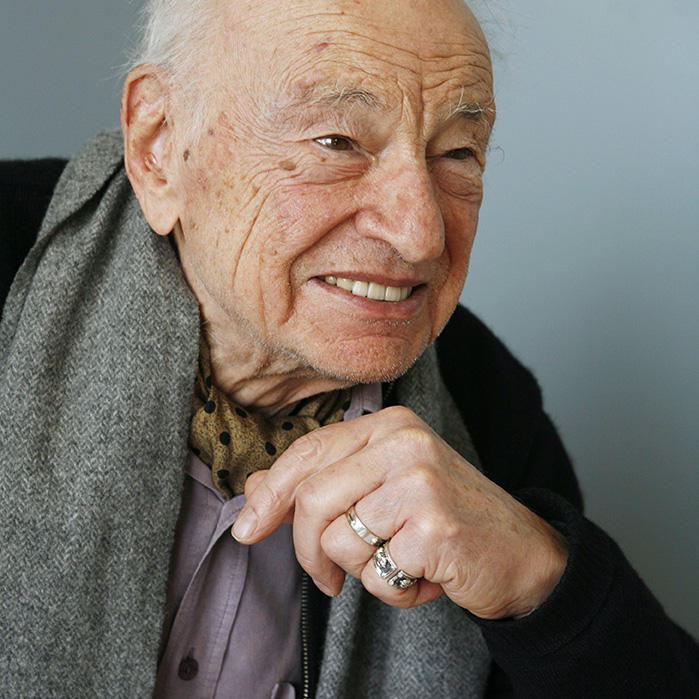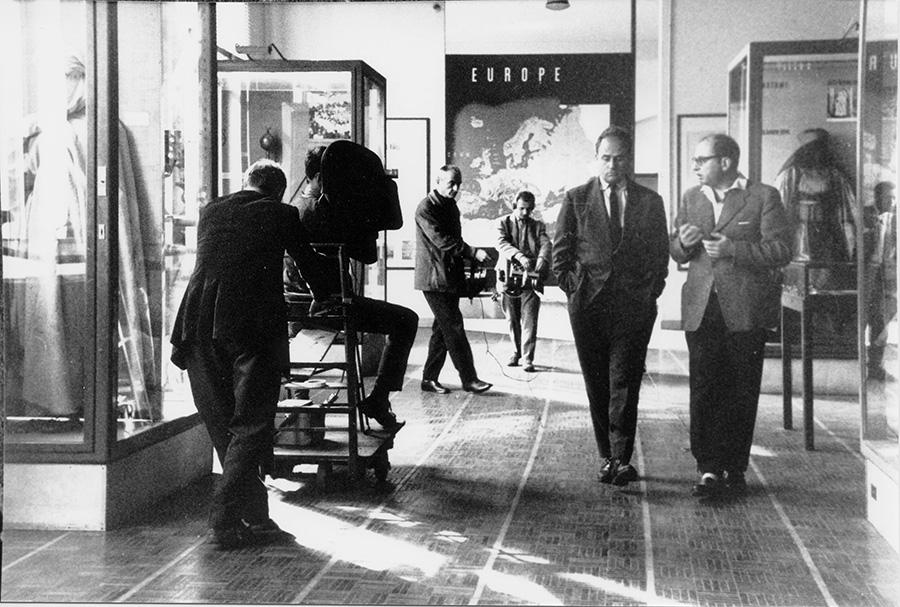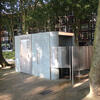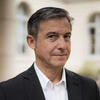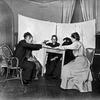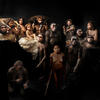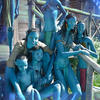You are here
Edgar Morin: In praise of complex thought
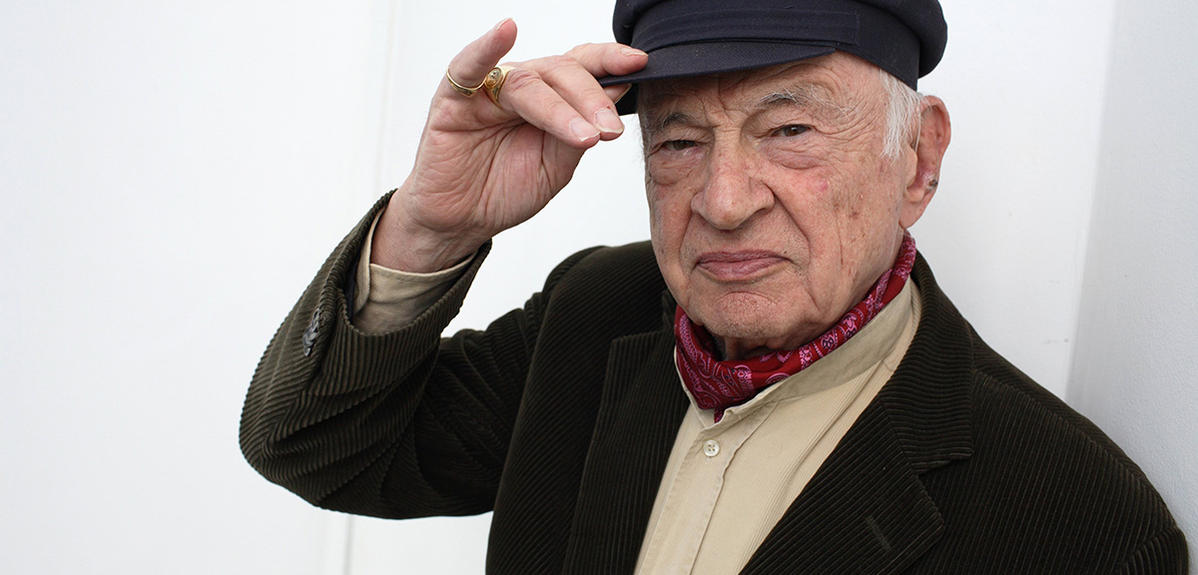
Time has given him the look of a wise old man, but Edgar Morin remains, more than ever, the anthropologist of contemporary society. The author of a monumental series entitled La Méthode, published over a period of nearly 30 years, he never tires of explaining how the pensée complexe (complex thought) that emerges from his writings offers the best approach for understanding the world in all its diversity. A CNRS senior researcher emeritus, Morin is also an active chairman of the scientific board of the ISCC.1 In his office in southeastern Paris, he recounts with a healthy dose of self-deprecation his relations with the world of research, sometimes baffled by this materialistic thinker, who willingly cultivates contradiction and mystery.
Sociologist, philosopher, or plain “thinker”… How would you like to be described?
Edgar Morin: I am often considered a sociologist, but I actually think and I work on the threefold nature of humankind: individual/society/species. It is in fact anthropology, in the old sense of the term, i.e. the interconnection of all knowledge about man. This has led me to a transdisciplinary approach. I realised this when I was working on my first important book, L’Homme et la Mort (“Man and Death”), published in 1951. At that time, the French National Library (BNF) had a total of four books on the issue, all of them religious. Yet understanding people’s attitudes towards death requires not only to study religion, but also biology, history—including prehistory—civilisations, psychology, psychoanalysis, practically all of the human sciences, not to mention literature and poetry, which delve into it deeply. In fact, no problem of any significance can be perceived from within a single compartmentalised discipline—it always requires transdisciplinarity.
Did your philosophical magnum opus, La Méthode, originate from this transdisciplinary approach?
E. M.: Indeed, it is an essential principle: to get away from research or hypotheses that confine their subject. The smallest topic, however seemingly minute, can only be understood within and through its context. This is something that I have had the pleasure of observing in recent years as chairman of the judges’ panel for the research prize handed out by the newspaper Le Monde. I remember one paper about ministry officials that described their procedure for identifying urgent dossiers. At first they used a “U” stamp to mark them as urgent. This later became “TU” for très urgent (very urgent), then “TTU” (very very urgent), etc. Seen in its context, the anecdote offers an interesting insight into nowaday’s increasing time pressure.
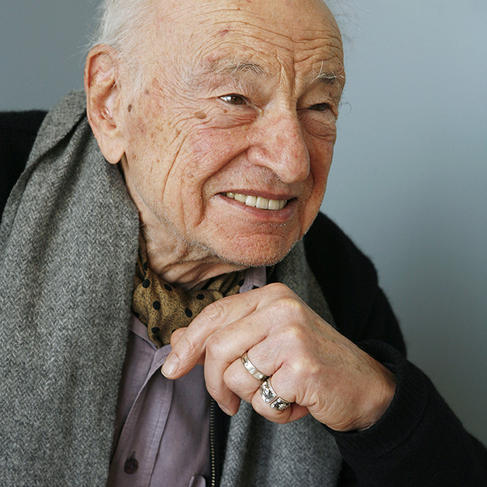
Is this to do with the complex thought that you so tirelessly uphold?
E. M.: Yes, it is what I have always sought to perceive and conceive: the complexus in its original common fabric. I have always tried to restore this common fabric, because according to my fundamental observation, all of our fields of knowledge are compartmentalised, separated from each other, whereas they should be interconnected. The key issue that I addressed through La Méthode is the compartmentalisation of knowledge. But it wasn’t enough simply to bring all of these elements together—more importantly, I needed to find the conceptual instruments that could connect them.
To achieve this and have a better grasp of such complexity, I had to establish a number of principles, including what I call the dialogical principle, according to which instances can be both complementary and antagonistic. I gave the example of European culture, formed by the complementary antagonism of two competing cultures, one JudaeoChristian and the other Greco-Roman. Together they make up a complex unity, European culture, within which their duality remains intact. In complexity, I also study the relationship between the whole and the parts. I show that the system is not only the sum of its parts, because its organisation produces qualities that cannot be found in its components. This is true of the organisation of living organisms: although entirely made up of physico-chemical molecular components, they have properties that molecules do not have on their own, such as selfreproduction, self-healing, cognition, and dependence on the environment—if only to feed and remain autonomous. So autonomy and dependence cannot be conceived separately.
Yet you also say that the whole can be less than the sum of its parts. Isn’t that a contradiction?
E. M.: Indeed, in certain organisations, the system can inhibit qualities specific to its components. In order to understand the apparent contradiction of a whole that is simultaneously more and less than the sum of its parts, I claim the heritage of the Greek philosopher Heraclitus, from the 6th century BC: when you reach a contradiction, it doesn’t necessarily mean an error, but rather that you have touched on a fundamental problem. Therefore, I believe that these contradictions should be recognised and upheld, rather than circumvented. Fortunately, this has been the case in quantum physics—as it should also be in astrophysics, since we are told that the Universe emerged from the void. Obviously, there is a contradiction in terms there…
Heraclitus is famous for his conception of a perpetually changing world. Does the principle of perpetual change also apply to complexity?
E. M.: Writing La Méthode required a great deal of research and documentation work, which took a relatively long period of time to complete.
In complex thought you cannot make do with a conventional method, simply following a plan. In this case the strategy can change at any time, as you to discover new information, and think of new ideas along the way. I moved on a lot over the course of the project. Certain ancillary points became important, and I modified the first volume, "The Nature of Nature," after asking a mathematician to proofread it… If I had to rewrite it today, I would no doubt give greater importance to the conceptual revolution sparked by astrophysics.
Last year I published another book, Connaissance, Ignorance, Mystère (“Knowledge, Ignorance, Mystery”), to show that complex thought is not the ultimate, comprehensive conception of the Universe. It is, however, the best approximation. I have always had the idea, which certain thinkers in antiquity had already proposed, that the more you further your knowledge, the more ignorant you realise you are—as perfectly illustrated by the ever-faster progress of modern science.
Does this idea put you on the side of the skeptic philosophers, who believe that no truth can ever be attained?
E. M.: Certainly not! I did not write the six volumes and 2,500 pages of La Méthode to end up embracing skepticism! Gaining an understanding of uncertainty is not skepticism, and believing that the more you know the more conscious you become of your ignorance by non means devalues the knowledge that has made us aware of such ignorance. On the contrary, it has the virtue of bringing us closer to the mystery of reality. The fact is that complex knowledge cannot eliminate uncertainty. We will never have an exhaustive grasp of everything! It’s a bit like chaos theory: in many deterministic systems, certain processes are unpredictable and uncontrollable.
As we have seen, your work draws upon an array of scientific disciplines. Is the reverse also true? Has research been influenced by the writings of Edgar Morin?
E. M.: My books have been published, they have been translated, but I think that their basic ideas have not—or perhaps not yet—been assimilated into the educational system. Moreover, it strikes me that many of the authors who greatly inspired me in writing La Méthode have remained on the fringe, somewhere between the natural and the human sciences. I’m thinking in particular of researchers from the 1940s and 50s, like the mathematicians Claude Shannon, the father of information theory, and Norbert Wiener, who pioneered cybernetics, as well as Von Foerster, Von Neumann, Ashby and others. They gave me the elements I needed to formulate a theory of complex organisation, but they are still largely unknown in both the natural and human sciences.
How do you explain this?
E. M.: It’s because of compartmentalisation: these researchers were seen solely as pure mathematicians or pure engineers, and not as organisation theorists. To go back to La Méthode, I think that this work remains little known because the predominant modes of knowledge and of thinking, not only in the sciences but also in everyday life and in politics, are still based on disjunction, in other words compartmentalisation into isolated sectors. Our way of thinking remains binary, including among scientists. This explains why my contribution continues to be dispersed rather than taking root. I often say that I’m like a tree whose seeds are scattered by the wind, sometimes falling in the desert, sometimes germinating very far away…
The holder of a BA in law and history-geography, you are in a sense self-taught. Could that be one reason why you’re more or less on the fringe of the scientific world?
E. M.: I also studied philosophy, economics and political science, but most importantly I developed my own knowledge working on complex, and thus transdisciplinary, problems. It is true that for the mandarinate, or for traditional specialists, I am still a kind of “UFO”, even though all of the materials that make it up come from our own culture and not from outer space!
And yet I made a career at the CNRS. I was named senior researcher without writing a doctoral thesis, since my book L’Homme et la Mort was deemed equivalent. I started climbing the ladder, all the while enjoying a great deal of freedom, which allowed me, very early on, to pursue my own areas of interest. I studied film, which at the time was considered unworthy of research (incidentally, my writings from that time were recently republished). All my life, I have been able to let myself be guided by chance and instinct. May I add that certain CNRS executives have been very understanding towards me.
I was also very fortunate to be published and to engage readers in all areas of science and thought. La Méthode was never fully integrated into the university curricula or research, but it exists.
Doesn’t it deserve a more accessible version for the general public?
E. M.: When I was about to finish writing La Méthode, I decided that I ought to give it an educational dimension. I had intended to write a book that would be called Manuel (“Manual”) for schoolchildren, teachers, members of the public, etc., but at that point, I was asked to join a commission on reforming the secondary school curricula. In 1999, I pursued this line of thought in a book entitled La Tête Bien Faite (“The Wise Mind”). This was followed by another book, Seven Complex Lessons in Education for the Future, commissioned by UNESCO, in which I proposed themes to be incorporated in education at the global scale, including pertinent knowledge, error and illusion, the understanding of others, human reality… We are never taught the essentials, i.e. what is a human being?
You are a prominent presence in the public debate around these issues. Don’t you think that’s the best way to expand on your philosophical work, given that ideas and action are important elements of complex thought?
E. M.: Indeed, there is the entire realm of ideas, which I called the “noosphere.” Ideas both help us get acquainted with the world while, on the contrary, preventing us from knowing it better. This is because, just as the human mind creates gods that end up exerting extraordinary power over it, the ideas it produces can take on a life of their own and eventually dominate us. Ideologies can enslave us to ideas that we ourselves have created.
As for action, it takes us back to the uncertainty principle of complex thought: in my Éthique (“Ethics”, volume six of La Méthode) I explain that any decision must be aware of the fact that it is a gamble. As soon as it enters a given environment, any action will be subject to interaction and feedback, thus running the risk of deviating from its original purpose. Hence the need to control it via a suitable strategy that integrates the continuous flow of new information arising along the way.
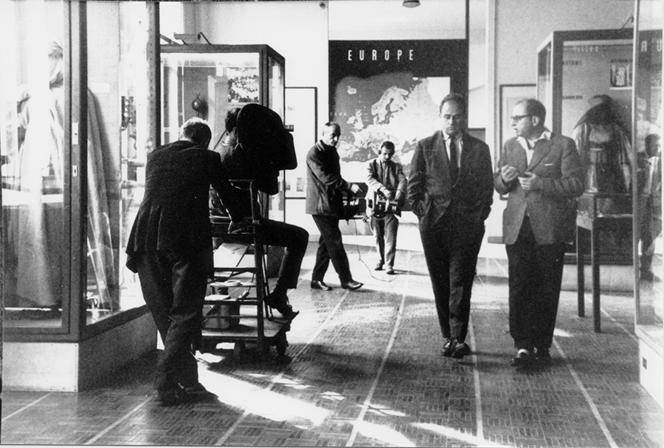
How do you articulate this strategy in the context of political discussions?
E. M.: By asking myself, “Are we taking the right path? Is it not dangerous? Do we have the capacity to change it?” However, for me these are questions that need to be asked with regard to globalisation, for example, rather than political parties. Of course, I continue to uphold left-wing political positions, but they’re my own, not those of the official parties. I was a wartime communist, but I broke away from this activism in 1950. Since then I have not been a member of any party. I advocate a union of different heritages: the libertarian heritage, which recognises the individual and their fulfillment, the heritage of socialism, which seeks to improve society, and the heritage of communism, which promotes community life. More recently, I have also wholeheartedly embraced the ecological heritage.
Last year, we saw the 50th anniversary of the social upheavals of May 1968 in France, a movement that you followed closely. What is your view of this period today?
E. M.: May 68 was the expression of youthful aspirations that were symptomatic of the state of our civilisation. I had throughly studied these youth movements, especially in Berkeley, California—the discontent of young people from affluent backgrounds who longed for greater community, fraternity and self-fulfillment. In France, the initiative was of course led by libertarians like Daniel Cohn-Bendit, but it was soon coopted and taken over by Trotskyist and Maoist cells, who told those youths: “We are the ones who will fulfill your aspirations”. As a result, the movement reached a climax and then died down. What’s left of it today? Actually, it’s really strange: May 68 changed everything and changed nothing.
The difference it did make was to raise awareness that the foundations of our civilisation were undermined. It was the end of the euphoria of the so-called Trente Glorieuses (the “Glorious Thirty” years after World War II, characterized by prosperity), attitudes changed, as testified by the acceptance of homosexuality or the rise of the feminist movement. The latter is quite enlightening: at the time, I had commissioned a study of women’s magazines, which showed how everything was positive and upbeat up until 1968. Readers were told to be beautiful, cook nice dishes for their husbands, etc. After May 68 the press became problematic, and its message was quite different, “Are you ageing? Are your children leaving home? Is your husband having an affair with a younger woman? Stand up to it, be strong!” We went from the euphoria of a triumphant civilisation to a state of latent anxiety.
And in terms of ideas, what remains of 1968?
E. M.: A rather basic Marxist current emerged after May 68, but it started to collapse in 1977 when there was no longer any hope for the USSR, no hope for China and its Gang of Four. Or when Vietnam, which had been idealised, became the invader of Cambodia, and when Cambodia itself fell under the grip of Pol Pot and his genocidal madness. Many other events followed, after the decline of structuralism. May 68 was a milestone, mostly in symbolic terms, by revealing aspirations that in the meantime have found expression elsewhere. The change also involves the 1973 economic crisis, which turned a full-employment into an unemployment society.
In your view, do the political events of recent months in France mark an important change?
E. M.: I believe that Emmanuel Macron has a very strong, highly educated and daring personality, with a great capacity for defiance that has enabled him to bring down old, timeworn political institutions. I think that this process is beneficial, as is the small crisis within the right-wing National Rally party (ex National Front). For the reorganisation that is yet to come, I think it’s imperative that we abandon the current ultra-conventional economic model and adopt what (now ex-) ecology minister Nicolas Hulot has so aptly suggested: a far-reaching ethical and ecological policy to clean up the cities and transform industrialised farming and agriculture. This could only be worthwhile in terms of employment, public health, quality of life, social outreach… In the meantime, I acknowledge the importance of what is happening, with a president who is more complex than a so-called ‘president of the rich.’
Complex—as you are as well. Which exposes you to controversies and misunderstandings, for example concerning your position on secularism…
E. M.: Despite what people might say, I have always been and always will be a defender of secularism. In the debates with the islamologist Tariq Ramadan, I systematically stood my ground as a radical unbeliever, and in my exchanges with former French president François Hollande, I proposed that we call France a unified, indivisible, secular and multicultural republic. The debate focused on the concept of multiculturalism, not on secularism. I hold the same position on religion as on ideas: once the human mind creates gods, we observe this extraordinary phenomenon in which those same gods wield tremendous power over the people who brought them into existence. As for me, as I explained in Mes Démons (“My Demons”), my faith is a faith in fraternity and in love, even though I know they cannot triumph. The existential consequence of which is a life lived in both moderation and in excess, in hope and in despair, in horror and in awe.
- 1. Institut des Sciences de la Communication (CNRS / Sorbonne Université).



